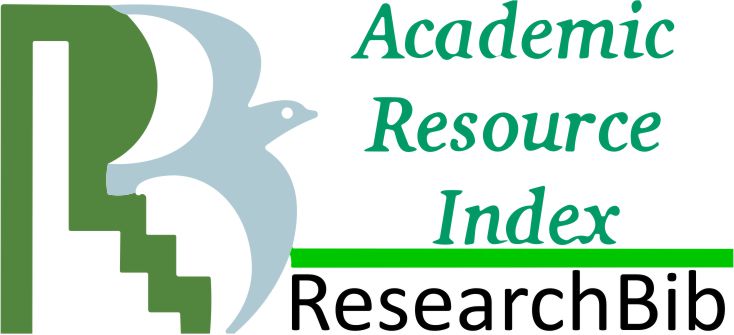DOI
10.21002/jaki.2023.02
Abstract
Double entry bookkeeping (DEB) and the rules of debit and credit (RDC) are first contained in a mathematical book. Using this basic premise, this study develops a mathematics-based teaching model (MBTM) and examines its impact on instructors’ financial accounting performance. This study employed a quasi-experimental method with 43 accounting instructors as participants. The findings indicate that the implementation of the MBTM resulted in a significant improvement in instructors' performance. Furthermore, the teaching experience had a positive effect on instructor performance, particularly when combined with the MBTM approach. Previous empirical research has aimed to compare traditional (preparer) and innovative (user) teaching approaches for the introductory accounting course. In line with this objective, the present empirical study introduces the MBTM as an innovative teaching model and assesses its effectiveness. This study is the first of its kind to implement the innovative mathematics-based teaching model (MBTM) specifically designed based on the history of accounting. It is worth noting that the study also utilized accounting instructors as research subjects, a less commonly employed approach in previous research endeavors.
Bahasa Abstract
Pembukuan berpasangan (Double entry bookkeeping) dan aturan debit dan kredit (rules of debit and credit) pertama kali dimuat dalam buku matematika. Berdasarkan premis dasar ini, penelitian mengembangkan model pengajaran berbasis matematika (mathematics-based teaching model/MBTM) dan menguji dampaknya terhadap kinerja instruktur akuntansi keuangan. Penelitian ini menggunakan metode eksperimen kuasi dengan melibatkan 43 orang instruktur akuntansi sebagai partisipan. Temuan menunjukkan bahwa implementasi MBTM menghasilkan peningkatan yang signifikan dalam kinerja instruktur. Selain itu, pengalaman mengajar memiliki efek positif pada kinerja instruktur, khususnya jika digabungkan dengan pendekatan MBTM. Penelitian empiris sebelumnya bertujuan untuk membandingkan pendekatan pengajaran tradisional (penyusun) dan inovatif (pengguna) untuk mata pelajaran pertama dalam akuntansi. Sejalan dengan tujuan ini, penelitian empiris ini mengusulkan MBTM sebagai model pengajaran yang inovatif dan menguji keefektifannya. Penelitian ini adalah yang pertama menerapkan model pengajaran MBTM yang dirancang khusus berdasarkan sejarah akuntansi. Perlu dicatat bahwa penelitian ini juga menggunakan instruktur akuntansi sebagai subjek penelitian, pendekatan yang jarang digunakan dalam upaya penelitian sebelumnya.
References
Adeyemi, T. O. 2008. Teachers Teaching Experience and Students Learning Outcomes in Secondary Schools in Ondo State, Nigeria. Educational Research and Reviews, 3 (6), 204-212.
Ainsworth, P., and D. Deines. 2004. Introduction to Accounting: An Integrated Approach 8th Edition. US: Wiley.
Akaaboune, O., L. H. Blix, L. G. Carrington, and C. D. Henderson. 2022. Accountability in Distance Learning: The Effect of Remote Proctoring on Performance in Online Accounting Courses. Journal of Emerging Technologies in Accounting, 19 (1), 121-131.
Akinsolu, A. O. 2010. Teachers and Students’ Academic Performance in Nigerian Secondary Schools: Implications for Planning. Florida Journal of Educational Administration and Policy, 3 (2), 86-103.
Anthony, R. N., D. F. Hawkins, and K. A. Merchant. 2007. Accounting: Text and Cases. McGraw-Hill/Irwin Singapore - International Edition).
Ball, L. D., and F. M. Forzani. 2009. The Work of Teaching and the Challenge for Teacher Education. Journal of Teacher Education, 60, 497-511.
Berry, R., and W. Routon. 2020. Soft Skill Change Perceptions of Accounting Majors: Current Practitioner Views Versus Their Own Reality. Journal of Accounting Education, 53, 100691.
Bérubé, J., and Y. Gendron. 2022. Through Students’ Eyes: Case Study of A Critical Pedagogy Initiative in Accounting Education. Accounting Education, 31 (4), 394-430.
Boyle, D. M., B. W. Carpenter, D. R. Hermanson, and N. P. Mero. 2015. Examining the Perceptions of Professionally Oriented Accounting Faculty. Journal of Accounting Education, 33 (1), 1-15.
Chiang, B., Nouri, H., and S. Samanta. 2014. The Effects of Different Teaching Approaches in Introductory Financial Accounting. Accounting Education, 23 (1), 42–53.
Diller-Haas, A. 2004. Time to Change Introductory Accounting. The CPA Journal, 74 (4).
Edwards, J. D. 1960. Early Bookkeeping and Its Development into Accounting Author. The Business History Review, 34 (4).
Ellerman, D. P. 1985. The Mathematics of Double Entry Bookkeeping. Mathematics Magazine, 58 (4).
Ellerman, D. P. 2014. On Double-Entry Bookkeeping: The Mathematical Treatment. Accounting Education, 23 (5), 483-501.
Ewetan, T. O., and O. O. Ewetan. 2015. Teachers’ Teaching Experience and Academic Performance in Mathematics and English Language in Public Secondary Schools in Ogun State, Nigeria. International Journal of Humanities, Social Sciences and Education 2 (2), 123–134.
Financial Accounting Standards Board (FASB). 1985. Elements of Financial Statements. Statement of Financial Accounting Concepts No. 6. FASB. Norwalk.
Fowler, L. 2006. Active Learning: An Empirical Study of the Use of Simulation Games in the Introductory Financial Accounting Class. Academy of Educational Leadership Journal, 10 (3), 93-103.
Hatfield, H. R. 1924. An Historical Defense of Bookkeeping. Journal of Accountancy, 37 (4), 241–53.
Horngren, C. T., G. L. Sundem, and J. A. Elliott. 2002. Introduction to Financial Accounting 8th Edition. Upper Saddle River, New Jersey: Prentice Hall.
Ingram, R. W. 1998. A Note on Teaching Debits and Credits in Elementary Accounting. Issues in Accounting Education, 13 (2), 411-15.
Kenny, G. P., H. Groeller., R. McGinn, and A. D. Flouris. 2016. Age, Human Performance, and Physical Employment Standards. Applied Physiology, Nutrition, and Metabolism, 41 (6), 92-107.
King, T. E., V. C. Lembke, and J. H. Smith. 2001. Financial Accounting: A Decision-Making Approach. Second Edition. US: John Wiley and Sons, Inc.
Kini, T., and V. Podolsky. 2016. Does Teaching Experience Increase Teacher Effectiveness? A Review of the Research. Learning Policy Institute. https://learningpolicyinstitute.org/sites/default/files/product-files/Teaching_Experience_Report_June_2016.pdf
Krečič, M. J., and M. I. Grmek. 2008. Cooperative Learning and Team Culture in Schools: Conditions for Teachers’ Professional Development. Teaching and Teacher Education, 24 (1), 59-68.
Kyndt, E., D. Gijbels, I. Grosemans, and V. Donche. 2016. Teachers’ Everyday Professional Development: Mapping Informal Learning Activities, Antecedents, and Learning Outcomes. Review of Educational Research, 86 (4), 1111–1150.
Lawson-Body, A., L. Willoughby, and L. Lawson-Body. 2022. Applying Balanced Scorecard to Blackboard Technology in Accounting Education. International Journal of Technology and Human Interaction (IJTHI), 18 (1), 1-19.
Libby, R. P., P. A. Libby, and D. G. Short. 2004. Financial Accounting 4th edition. McGraw-Hill.
Littleton, A. C. 1927. The Antecedents of Double-Entry. The Accounting Review, 2 (2).
Littleton, A. C. 1928. Paciolo and Modern Accounting. The Accounting Review, 3 (2).
Louws, M. L., V. Meirink, K. van Veen, and J. H. van Driel. 2017. Teachers’ Self-Directed Learning and Teaching Experience: What, How, and Why Teachers Want to Learn. Teaching and Teacher Education, 66 (August), 171-83.
Nahartyo, E., F. F. Rohma., and L. Y. Mursita. 2020. The Mediating Effect of Overcompensation of Rationalisation on Instrumental Climate and Escalation of Corruption Relationship. Asian Academy of Management Journal, 25 (2).
Nelson, I. T. 1995. What’s New about Accounting Education Change? An Historical Perspective on the Change Movement. Accounting Horizons, 9 (4).
Nunes, T. C. S. et al. (2014). A New Way to Learn About Double-Entry Bookkeeping. In 12th World Congress of Accounting Educators and Researchers–IAAER.
Palm, C., and J. Bisman. 2010. Benchmarking Introductory Accounting Curricula: Experience from Australia. Accounting Education, 19 (1-2), 179-201.
Patten, R. J., and D. Z. William. 1990. There’s Trouble – Right Here in Our Accounting Programs: The Challenge to Accounting Educators. Issues in Accounting Education, 5 (2).
Peters, R. M., and D. R. Emery. 1978. The Role of Negative Numbers in the Development of Double Entry Bookkeeping. Journal of Accounting Research, 16 (2).
Phillips, F., and L. Heiser. 2011. A Field Experiment Examining the Effects of Accounting Equation Emphasis and Transaction Scope on Students Learning to Journalize. Issues in Accounting Education, 26 (4), 681-99.
Pincus, K. V. 1997. Is Teaching Debits and Credits Essential in Elementary Accounting? Issues in Accounting Education, 12 (2).
Porter, G. A., and C. L. Kaplan. 2001. Financial Accounting: The Impact on Decision Makers. USA: Harcourt College Publishers.
Rankin, M., M. Silvester, M. Vallely, and A. Wyatt. 2003. An Analysis of the Implications of Diversity for Students’ First Level Accounting Performance. Accounting and Finance, 43 (3), 365-393.
Richter, D. et al. 2011. Professional Development across the Teaching Career: Teachers’ Uptake of Formal and Informal Learning Opportunities. Teaching and Teacher Education, 27 (1), 116-26.
Rohma, F. F. 2022. Mitigating he Harmful Effect of Slack: Does Locus of Commitment (Organizational Versus Colleague) Play a Role. International Journal of Business Science & Applied Management, 17 (3).
Rohma, F. F., and R. D. Zakiyah. 2022. Retaliation, Obedience Pressure, and Investigative Decisions on Whistleblowing Allegations: An Experimental Study. Jurnal Dinamika Akuntansi, 14 (2), 156-166.
Rohma, F. F., I. Shofiyah, and A. S. Junaedi. 2023. The Effect of Tournament Horizon, Faultline and Group Performance Relationships under Decentralized System. Journal of Indonesian Economy and Business, 38 (1), 62-80.
Rossi, R., and A. Sangster. 2022. Accounting and Accountability Practices in The Obraje of San Ildefonso of Quito: An Eighteenth Century Productive Proto-Capitalist Model. Accounting History, 10323732221105105.
Sangster, A. 2018. Pacioli’s Lens: God, Humanism, Euclid, and the Rhetoric of Double Entry. The Accounting Review, 93 (2), 299-314.
Sangster, A. 2022. Revolutionising the Accounting Curriculum in Higher Education: A vision of the future. Accounting and Management Review| Revista de Contabilidade e Gestão, 26 (1).
Sangster, A. 2023. Vale Lúcia Lima Rodrigues. Accounting History, 28 (1), 5-8.
Sangster, A., E. Franklin, D. Alwis, J. Abdul-Rahim, and G. Stoner. 2014. Using Pacioli’s pedagogy and medieval text in today’s introductory accounting course. Journal of Accounting Education, 32 (1), 16-35.
Sangster, A., G. N. Stoner and P. A. McCarthy. 2007. Lessons for the Classroom from Luca Pacioli. Issues in Accounting Education, 22 (3).
Saudagaran, S. M. 1996. The First Course in Accounting: An Innovative Approach. Issues in Accounting Education, 11 (1), 83-94.
Scorgie, M. E. 1989. The Role of Negative Numbers in the Development of Double Entry Bookkeeping: A Comment. Journal of Accounting Research, 27 (2).
Subramanyam, K. R., and J. J. Wild. 2009. Financial Statement Analysis 10th edition. McGraw-Hill/Irwin.
Vangermeersch, R. G. 1997. Dropping Debits and Credits in Elementary Accounting: A Huge Disservice to Students. Issues in Accounting Education, 12 (2), 581-83.
Vinson, J. M., J. J. McMillan, and L. F. Schleifer. 2022. An investigation of the association of grit with performance in accounting courses. Journal of Accounting Education, 59, 100779.
Wallace, W. A. 1997. Where Are the Debits and Credits? Editor’s Perspective. Issues in Accounting Education, 12 (1).
Warren, C. S., J. M. Reeve, and P. E. Fess. 2002. Financial and Managerial Accounting. USA: South-Western, a division of Thomson Learning.
Warren, D. L., and M. N. Young. 2012. Integrated Accounting Principles: A Best Practices Course for Introductory Accounting. Issues in Accounting Education, 27 (1), 247-66.
Warsono, S. 2017. Accounting and Mathematics: Revisiting the Theory of Double Entry. Mauritius: LAP Lambert Academic Publishing.
Warsono, S., A. Pranesti., F. F, Rohma., and D.K. Priambodo. 2019. What Determine Performance of Financial Accounting Lecturers? An Experimental Study in Indonesian Higher Education Institutions. Jurnal Dinamika Akuntansi dan Bisnis, 6 (2), 183-196.
Weygandt, J. J., D. E. Kieso, and P. D. Kimmel. 2008. Accounting Principles 8th Edition. John Wiley and Sons (Asia) Pte Ltd.
Williams, D. Z. 2011. A Half Century of Close Encounters with the First Course in Accounting. Issues in Accounting Education, 26 (4), 759-76.
Williams, J. R., S. F. Haka, and M. S. Bettner. 2007. Financial and Managerial Accounting: The Basis for Business Decisions. McGraw-Hill/Irwin.
Wood, F., A. Sangster, L. Gordon, and F. Wood. 2021. Frank Wood's Business Accounting: An Introduction to Financial Accounting. Pearson Education, Limited.
Zilic, I. 2018. General versus Vocational Education: Lessons from a Quasi-Experiment in Croatia. Economics of Education Review, 62, 1-11.
Recommended Citation
Warsono, Sony; Rohma, Frida Fanani; Pranesti, Arin; and Rumiyati, Rumiyati
(2023)
"MATHEMATICS-BASED TEACHING MODEL AND INSTRUCTORS’ FINANCIAL ACCOUNTING PERFORMANCE: AN EXPERIMENTAL STUDY,"
Jurnal Akuntansi dan Keuangan Indonesia: Vol. 20:
No.
1, Article 2.
DOI: 10.21002/jaki.2023.02
Available at:
https://scholarhub.ui.ac.id/jaki/vol20/iss1/2












